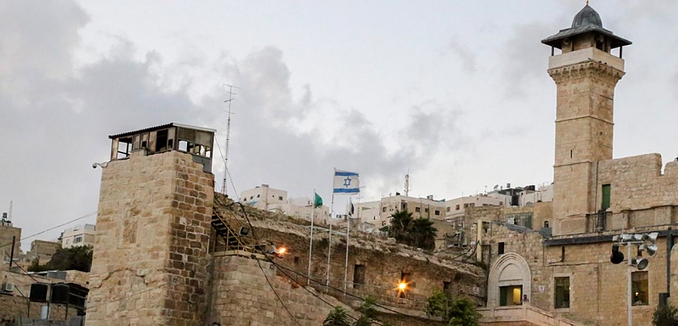The recent vote by the United Nations Educational, Scientific and Cultural Organization (UNESCO) to declare the Cave of the Patriarchs in Hebron and the Tomb of Rachel in Bethlehem “an integral part of Palestine” without mentioning their Jewish history, as well as to condemn Israel for archaeological digs in the Old City of Jerusalem, was a bait and switch tactic as part of the Palestinians’ continuing political war against Israel.
The New York Times reported Wednesday on the substance of UNESCO’s vote.
It “strongly condemns” what it calls “Israeli aggressions and illegal measures against the freedom of worship and Muslims’ access to their holy site, Al Aqsa Mosque” and “firmly deplores the continuous storming” of the mosque compound by “Israeli right-wing extremists and uniformed forces.” […]
While the resolution dropped the clause classifying the Western Wall as part of Al Aqsa compound, it reaffirmed that two other sites, the Tomb of the Patriarchs in Hebron and Rachel’s Tomb in Bethlehem, which are in the West Bank, were “an integral part of Palestine.”
The resolution criticized aspects of Israel’s management of holy sites in Jerusalem, saying that it “deeply deplores the recent repression in East Jerusalem, and the failure of Israel, the occupying power, to cease the persistent excavations and works in East Jerusalem particularly in and around the Old City.” It also condemned the “continuous negative impact of the Israeli military confrontations” in the Gaza Strip on Unesco operations.
The initial resolution, which was introduced by six Arab states on behalf of the Palestinians and included a clause claiming that the Western Wall was a part of al-Aqsa mosque, was rejected by UNESCO’s chief, Irina Bokova. While the resolution that passed did not contain the contentious clause, it still gave credence to several other Palestinian claims, effectively following a pattern established earlier this year when Palestinians sought to have Israel banned from FIFA, the world’s governing body of soccer.
In May, FIFA was set to consider a motion introduced by the Palestinians to expel Israel from the international soccer association. Following the heavy criticism that the move brought on the scandal-plagued FIFA, the Palestinians withdrew their motion, but still succeeded in imposing a number of measures against Israel. These included “a mechanism of monitoring” Palestinian complaints, among them the continued participation of Israeli soccer clubs from the West Bank in FIFA matches.
Dan Diker, director of the Political Warfare project at the Jerusalem Center for Public Affairs, said that the timing of UNESCO’s vote along with the ongoing terror further reflects “the merging of classical terrorism and political warfare.” He added, “[The Palestinians] are trying to demoralize the Israeli public, first by fear of terror, and second by mobilizing the international community against the legitimacy of the Jewish state.” Diker said that the tactic of spreading a libel that Jews are endangering Muslim holy sites to foment violence goes back nearly a century, namely to the infamous Mufti of Jerusalem, Haj Amin al-Husseini. The Hebron massacre of 1929, in which Arabs killed over 65 members of the city’s ancient Jewish community, was sparked by a similar libel.
[Photo: Gershon Elinson / Flash90 ]




